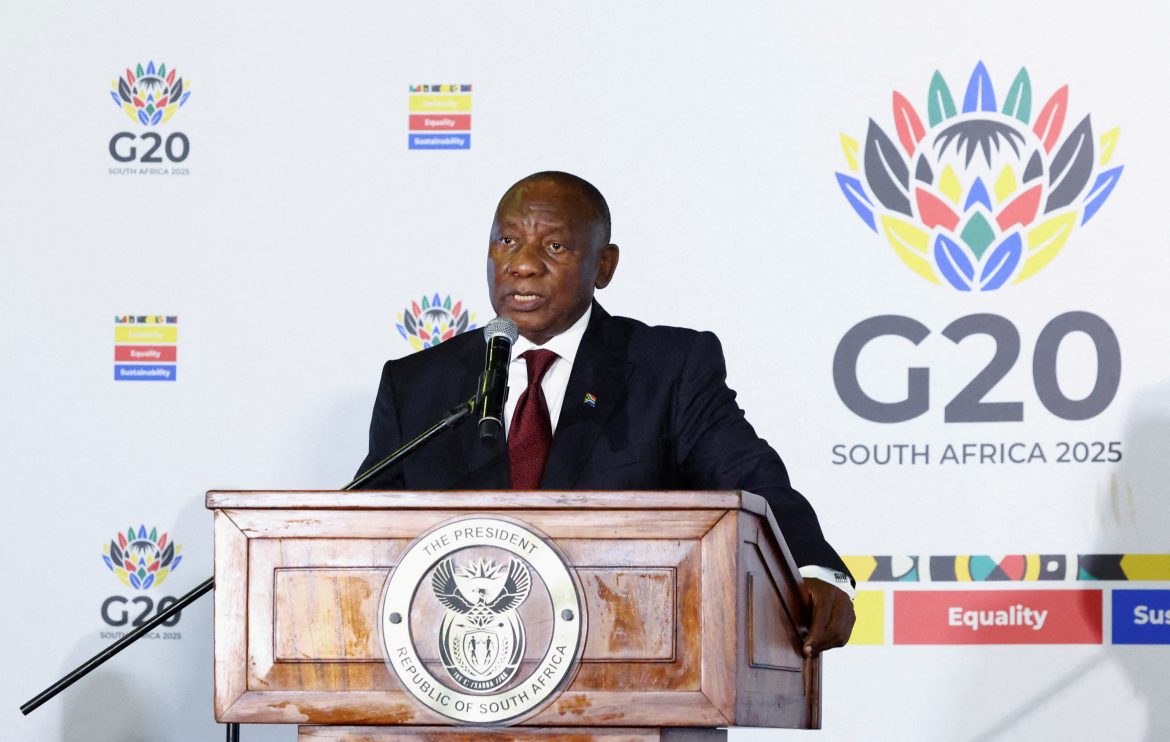By Muhammad Amaan with agency report
South African President Cyril Ramaphosa has received a Group of 20 (G20) expert panel report that proposes solutions to some of the continent’s most pressing economic challenges, especially the rising debt burden.
The Report of the Africa Expert Panel was submitted to the president during a handover ceremony on in Johannesburg.
Speaking at the event, President Ramaphosa said the release of the report marks a “key milestone” of South Africa’s G20 presidency, adding that it reinforces the message that “the greatest opportunity for global prosperity in the 21st century lies in Africa.”
He noted that unlocking this potential requires a new partnership among African countries, the G20, and global institutions to mobilise financing for infrastructure and human development.
“If we do not address the debt burden facing many African countries, we risk a lost decade for development in Africa and other regions of the world,” he cautioned.
“That is why South Africa has made debt sustainability a high-level priority of our G20 presidency.”
President Ramaphosa highlighted the report’s findings on Africa’s disproportionately high cost of capital, which he said continues to raise borrowing costs and limit investment.
The report calls for expanded concessional finance, enhanced transparency and accountability from credit rating agencies, and reforms to counter biased perceptions of African risk.
The Africa Expert Panel was established by Finance Minister Enoch Godongwana, in line with South Africa’s mandate as G20 president to advance Africa’s developmental priorities.
Chaired by former finance minister Trevor Manuel, the 26-member panel, including 20 African experts, was mandated to produce evidence-based policy recommendations that strengthen Africa’s voice within the G20 Finance Track.
The report outlines a series of proposals to tackle Africa’s debt constraints and accelerate investment, including a new G20 debt refinancing initiative, steps toward a more transparent and effective sovereign debt resolution mechanism, stronger debt data systems, and improved debt sustainability analysis.
It also calls for measures to stimulate long-term investment, such as advancing the African Continental Free Trade Area implementation, developing national and regional investment frameworks, and tightening the regulation and disclosure requirements of credit rating agencies.
“Together, the actions they propose can create an investment boom in Africa,” Ramaphosa concluded.
“South Africa will take these proposals forward not only in the G20 but in other international fora, working closely with the African Union and other partners.”




